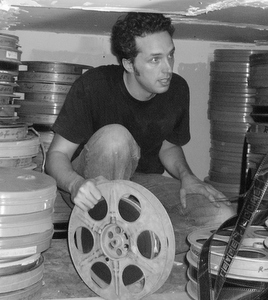- Culture
- SEE MORE
- classical
- general
- talk
- News
- Family
- Bürgerfunk
- pop
- Islam
- soul
- jazz
- Comedy
- humor
- wissenschaft
- opera
- baroque
- gesellschaft
- theater
- Local
- alternative
- electro
- rock
- rap
- lifestyle
- Music
- como
- RNE
- ballads
- greek
- Buddhism
- deportes
- christian
- Technology
- piano
- djs
- Dance
- dutch
- flamenco
- social
- hope
- christian rock
- academia
- afrique
- Business
- musique
- ελληνική-μουσική
- religion
- World radio
- Zarzuela
- travel
- World
- NFL
- media
- Art
- public
- Sports
- Gospel
- st.
- baptist
- Leisure
- Kids & Family
- musical
- club
- Health & Fitness
- True Crime
- Fiction
- children
- Society & Culture
- TV & Film
- gold
- kunst
- música
- gay
- Natural
- a
- francais
- bach
- economics
- kultur
- evangelical
- tech
- Opinion
- Government
- gaming
- College
- technik
- History
- Jesus
- Health
- movies
- radio
- services
- Church
- podcast
- Education
- international
- Transportation
- Other
- kids
- podcasts
- philadelphia
- Noticias
- love
- sport
- Salud
- film
- and
- 4chan
- Disco
- Stories
- fashion
- Arts
- interviews
- hardstyle
- entertainment
- humour
- medieval
- literature
- alma
- Cultura
- video
- TV
- Science
- en
S2E23: Stumptown Shaolin with Dan Halsted

Colin Marshall sits down in the basement of Portland's\xa0Hollywood Theatre\xa0with Dan Halsted, head programmer there and founder of the\xa035mm Shaolin Archive. They discuss fake Bruce Lee films; his adventure of rescuing classic kung-fu film prints, including gems like\xa0The Eight Diagram Pole Fighter\xa0and\xa0The\xa0Boxer's Omen\xa0from a shuttered, junkie-surrounded theater in Vancouver; his youth in a distant Oregon town with 600 people, his move to Portland, and his discovery of kung-fu cinema; how much more kung-fu movies offer than the fighting; the advantageous openmindedness of Portland filmgoing culture; exploitation films and Quentin Tarantino's high-profile love thereof; how different cities react to kung-fu movies, like the robust Chinese turnout in San Francisco or the disappointing attendance in St. Louis; kung-fu movies as a gateway to Chinese culture;\xa036 Chamber of Shaolin\xa0as a gateway to kung-fu movies; the evaporation of celluloid film, and the apparently dramatic shift in the way those under age twenty experience cinema; the various meanings of terms like "exploitation" and "grindhouse," and how the attendant concepts cannot be separated from the seventies, a time when Hollywood acted serious and independent film acted frivolous; what Portland's smallness affords a film programmer; why audiences sometimes prefer watching a beaten-up print to a pristine one; how Portland has successfully integrated food and alcohol with filmgoing; his\xa0experience getting tased, and how the Portland police force, known for its own aggression, tried to use kung-fu movies against him in court; and his never-ending task of pushing outward the limits of local film taste.
\nDownload the interview from\xa0Notebook on Cities and Culture\u2019s feed\xa0or on\xa0iTunes.